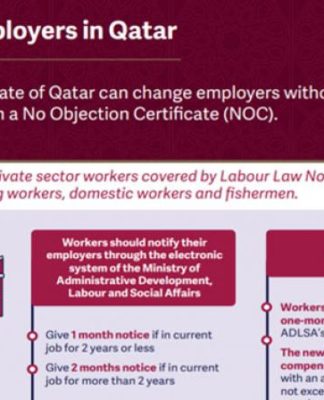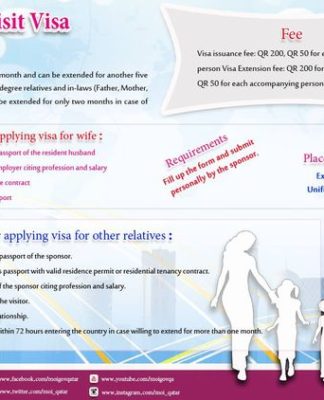MENTAL HEALTH
Is napping at work a good idea? This research points to its benefits
Apr 24, 2023
This article is published in collaboration with
The Conversation
Sleep research tends to focus on nighttime sleep and how it affects people in developed economies.
Sleep research tends to focus on nighttime sleep and how it affects people in developed economies.
Image: Pexels/ RODNAE Productions
Mattie Toma
Assistant Professor, Warwick Business School, University of Warwick
Share:
OUR IMPACT
What’s the World Economic Forum doing to accelerate action on Mental Health?
THE BIG PICTURE
Explore and monitor how Mental Health is affecting economies, industries and global issues
A hand holding a looking glass by a lake
CROWDSOURCE INNOVATION
Get involved with our crowdsourced digital platform to deliver impact at scale
Stay up to date:
Mental Health
Some companies are aware of the benefits of a good night’s sleep, and have facilities such as rooms to nap in or lighting systems that regulate the sleep hormone melatonin.
A study that trialled giving workers 30-minute naps during the afternoon showed a 14% rise in productivity.
Further research in this area could lead to benefits for workers and employers.
Wellbeing at work is being taken more seriously by many businesses these days. After all, recent research has shown that more than a quarter of Generation Z workers – those born between 1997 and 2012 – seek out workplace benefits that help them cope with stress. This includes nap pods, meditation rooms and massage chairs.
The focus on sleep is important. Analysis in 2018 by research organisation RAND Corporation suggests up to 3% of a country’s GDP could be lost due to lack of sleep. On an organisational level, some companies are aware of the benefits of a good night’s sleep. Nike’s headquarters in Portland, Oregon, reportedly has rooms employees can use to nap. Other firms have installed lighting systems to regulate the sleep hormone melatonin, so employees find it easier to switch off when they finish work in the evening.
But the concept of “sleeping on the job” by building naps into the working day remains anathema to most companies – even if it boosts mental wellbeing or helps attract top talent. Sleep science has progressed greatly in recent years, with lab experiments confirming what many already suspected: insufficient sleep can cause issues with cognitive function and mental health.
Indeed, a study I conducted with academics from Masschusetts Institute of Technology, Harvard and the University of Pennsylvania used actigraphs (devices that measure sleeping patterns in patients with sleep disorders) to monitor the sleep of a group of around 450 adults in Chennai, India. We found they were only sleeping 5.5 hours per night, and the shut-eye they did get was of poor quality. Despite spending eight hours in bed, their sleep was extremely interrupted, on a level comparable to those with disorders such as sleep apnoea or insomnia.
Over three weeks, we offered a series of interventions to different groups of workers to see how that would affect their cognition, productivity, decision making and wellbeing when working in an office-based data entry role with flexible hours. In this environment, we were able to monitor hours worked, measure productivity and labour supply, and survey participants’ psychological and physical wellbeing.
Some members of the trial group were offered nighttime sleep treatments, including items to improve their environment such as sleep masks, fans or mattresses. They also received advice on the benefits of good quality sleep, the recommended hours of sleep, and strategies to improve sleep. Others were offered financial incentives, and were promised payment when extra sleep was tracked on the actigraphs.
Have you read?
How a night of poor sleep can affect your next day at work – and 4 ways to function better
Just 16 minutes of sleep loss can harm work concentration the next day
Why sleeping at work could actually make you better at your job
A night’s sleep versus a nap
These night sleep interventions increased sleeping time by an average of 27 minutes. But the extra shut-eye did not improve workers’ cognition, productivity, decision making or wellbeing. It also led to a slight reduction in labour supply as people came into the office later because they were asleep for longer.
Another group of participants were offered the option to take a 30-minute nap in the afternoon in a comfortable and quiet environment. This group saw notable improvements across the outcomes we were looking at, including psychological wellbeing, cognition, and an average 2.3% bump in productivity over the course of the day.
This could be because these naps were timed to coincide with a normal mid-afternoon dip in energy. Also, the environment we created for the naps supported higher quality sleep than the study participants were used to at home, where they had reported interruptions such as traffic noise or mosquitoes.
As part of the experiment, we also randomly varied the pay rate across periods – participants earned four times more than others at some points. This meant we could compare our results to an increase in wages. Doing this increased productivity by 14%, and our results suggested that taking a midday nap boosted productivity as much as a 50% wage hike.
Some companies are aware of the benefits of a good night’s sleep.
Some companies are aware of the benefits of a good night’s sleep. Image: Pexels/ EKATERINA BOLOVTSOVA.
Limitations of sleep research
Sleep research tends to focus on nighttime sleep and how it affects people in developed economies. It has also almost exclusively taken place in sleep labs, rather than looking at people’s real experiences at home.
More research in this area would be really beneficial both for workers in low income economies and for employers in the developed world. Indeed, another more recent article I worked on encourages others to use field experiments to generate more evidence on sleep. This could include exploring the impacts of different interventions such as adjusting the physical sleep environment, or of social policies like changing work times.
Individual companies could also carry out informal experiments into the value of naps. Identify two groups of employees and allow one set to take a nap and compare results over time to see if it’s worthwhile for the business. Introducing a small number of soundproof sleep spaces or “nap pods” could also have a positive impact on employees’ productivity or wellbeing at a relatively low cost.
DISCOVER
What is the World Economic Forum doing about mental health?
Educating employees on the value of high-quality sleep and encouraging them to carve out time in their daily schedules – particularly now many people are working at home sometimes – could also pay off in productivity improvements.
It may seem counter intuitive to reduce somebody’s working time during the day, particularly when budgets are squeezed and the cost of living is rising. But the long-term benefits to wellbeing could boost employee retention and goodwill towards the companies that do allow employees to sleep on the job.
Don’t miss any update on this topic
Create a free account and access your personalized content collection with our latest publications and analyses.
License and Republishing
World Economic Forum articles may be republished in accordance with the Creative Commons Attribution-NonCommercial-NoDerivatives 4.0 International Public License, and in accordance with our Terms of Use.
The views expressed in this article are those of the author alone and not the World Economic Forum.
Related topic























![Qatar Labor Law In 2020??? [UPDATES]](https://welcomeqatar.com/wp-content/uploads/2020/12/Qatar-Labor-Law-1-696x366-1-324x366.jpg)

